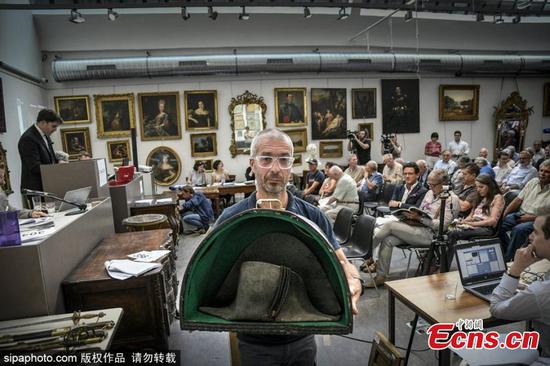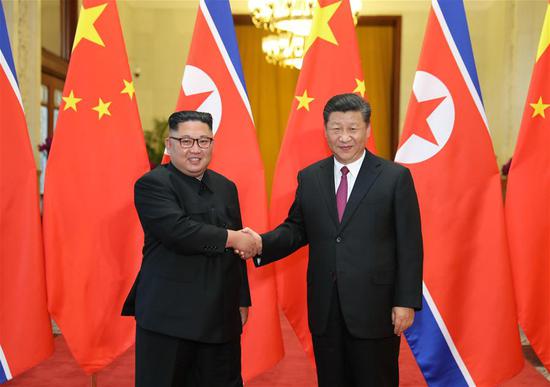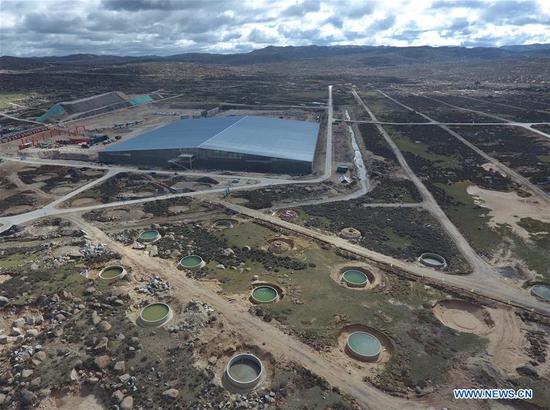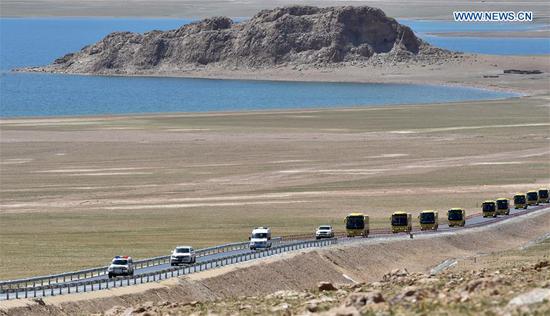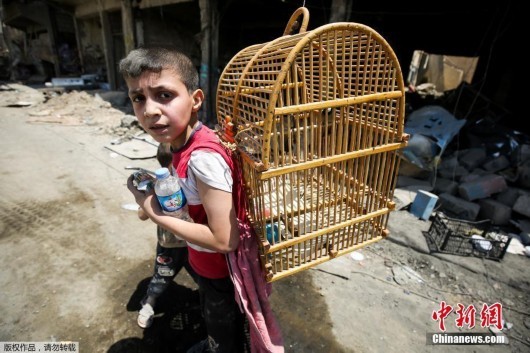
An Iraqi boy carries a birdcage on his back as he flees from the Old City of Mosul on June 20, 2017. (Photo/Agencies)
It’s not uncommon for people to travel from one country to another. However, the situation is much more complicated for refugees, of which there were 25.4 million by the end of 2017, according to the UNHCR (the United Nations High Commissioner for Refugees).
Having witnessed the situation in their homeland deteriorating and the circumstances needed to make a living destroyed, people have to leave their motherland without knowing what awaits them next.
With a shattered home left behind and unknown obstacles approaching, a person, who is not prepared yet but forced on the journey, becomes a refugee.
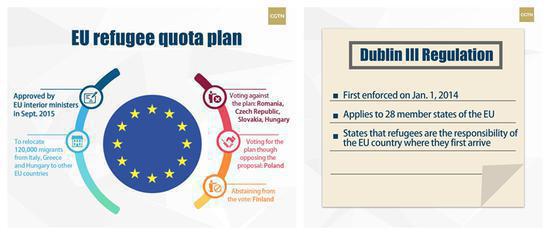
This partly explains what’s sometimes on the media, the footage of refugees shows them in shabby boats crossing the Mediterranean, after having encountered disasters at sea. Most recently, it was Aquarius rescue boat with over 600 refugees.
The boat, which later docked in the Spanish city of Valencia, had been stranded in the Mediterranean for hours because neither Italy nor Malta was willing to take it.
Southern European countries such as Italy and Greece are the first choice for refugees crossing the Mediterranean for asylum.
Based on the Dublin III regulation, first enforced on Jan. 1, 2014, refugees are the responsibility of the EU member state where they first arrive. This makes Italy a frontline country and the increasing burden on it has been clearly felt by the Italians themselves.
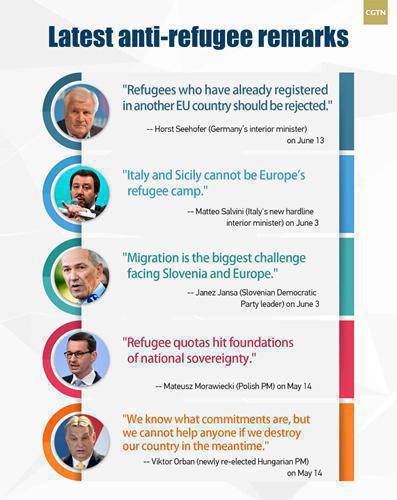
Designed to help Italy and Greece share burden of migrant arrivals, a refugee quota plan was approved by EU interior ministers in September 2015. Before approval was announced, Romania, the Czech Republic, Slovakia and Hungary voted against the plan.
Poland, though voting for the plan then, hasn’t yet put it into practice, together with countries like Hungary and Czech Republic.
While meeting with visiting Hungarian Prime Minister Viktor Orban in Warsaw on May 14, Polish Prime Minister Mateusz Morawiecki criticized the EU policy sharply, saying such plans “hit the very foundations of national sovereignty.”
Of course, Mateusz Morawiecki was echoed by his Hungarian counterpart.
















